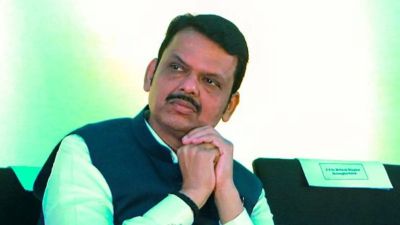The faceless dead don8217;t have opinions
NAME: Unknown. Age: Unknown. Build: Medium. Hair: Dark. Distinguishing marks: None. Status: Brought dead.Every day of the year, a few hun...

NAME: Unknown. Age: Unknown. Build: Medium. Hair: Dark. Distinguishing marks: None. Status: Brought dead.
Every day of the year, a few hundred people in India are thus characterised in a little form issued by hospital emergency rooms. The utility of this form is limited: it is meant to be filed away in police station ledgers, not to be acted upon with any despatch. The government various governments, at various levels assure us that we are on the brink of the information age. Apparently, our lives will soon be so scrupulously documented that privacy will become an issue. In other words, it will be impossible to disappear. This vision seems a bit incredible while the Unknown Victim soldiers on.
In a country like India, it is so easy to disappear. Go under a highway truck, get on the wrong side of a caste army8217;s guns, board a train that is fated to slam into another train, or just drown in the comfort and security of your own home, and the job is done. It8217;s a perennial magic trick, made possiblebecause in a country like India, the administration deals in numbers, not people; aggregates, not communities; statistics, not humanity.
In a country like India8217;: the hatefully pusillanimous phrase serves as a general disclaimer for every evidence of subhumanity in the corridors of power. The implication is that the numbers are so very large here that it would be futile to look beyond them. The great statisticians who run the steel frame, from the political gentry at the helm down to the lowliest lower-division clerk, are unanimous in insisting that if they were to get involved in the process, they would lose sight of the bigger picture.
Administration must necessarily be remote, if it is to look after the greatest good of the greatest number. How could they be expected to take individual cognizance of the tally of meaningless deaths that India runs up every day of the year? Who would run the country then?
The truth, however, is that neat charts and graphs are easier on the nerves than bodies bearingname-tags. They go better with career graphs, too. They8217;re plumb easy even estimates will do. The people will never ask for further evidence of the administration8217;s commitment.
In Orissa, the cyclone toll was initially estimated to be 10,000. As the weeks pass, the rough figures will dwindle until they stabilise at, say, 1,000. Ah, it wasn8217;t as bad as we thought, the nation shall think indulgently, we always overreact. Quite forgetting that in a modern state, a death toll of even a few hundred, in a disaster which could have been easily averted, is an abomination. The rulers have already come up with the usual apologia pro vita sua: it was logistically impossible to evacuate whole cities and the countryside as well, despite the four days8217; warning that the cyclone gave. The numbers were, as usual, too big.
Interesting argument, one that will no doubt secure the forgiveness of the nation. The thousand faceless dead are in no position to express an opinion, so they don8217;t matter. Anyway, the issuepales into insignificance in the face of the immediate problem: law and order. People attacking helicopters bearing ministers. Their famished brethren stopping people in the streets and robbing their vegetables. Yes, Orissa is in the grip of a law and order problem. Not hunger, mind you, or thirst. Not the desperation of a people living in the shadow of miserable, pointless death. The immediate issue is law and order. Because in a country like India, the numbers are too large to put a human face on.
The bodies were laid out in neatly-sheeted rows by the racks at Gaisal. As usual, a good number went unclaimed. They were burned on communal pyres. Western dictators used lime pits instead, but that8217;s cultural preference for you. It is difficult to believe that these unidentified dead were all unwanted. The chances are that their people never got the opportunity to claim them, because the administration never let them know that their relations may have died. Yes, yes, we know people keep hopping on and offtrains and they8217;re difficult to keep track of, the pesky little fellows. In a country like India, everything is so very difficult.
But one wonders if there was any attempt to make the pictures and known details of the dead available at the stations on the route, where these people might have got on the train. Indians never tire of dinning their strong family ties into the heads of decadent foreign devils. Odd, but an unidentified body is a rarity in the West, and is widely reported in the press. In a country like India, paradoxically, it only makes the snippets columns.
We have district administrations which have no idea who lives in their villages, who is born, or who has died. Our local representatives of government have no clue about who is in their charge. People approach them, as they once tolled the emperor8217;s bell at Agra. They never have the time to go to the people. The only image they have of the masses is the census, a snapshot, taken once every ten years, of faceless millions. We8217;re ratherproud of it, and claim that it is the biggest administrative exercise in the world.
We are big. We are macro. But in the relentless quest for the big picture, we have lost all respect for detail. And that, unfortunately, is where God is supposed to reside. Pity we left Him by the wayside in the pursuit of the lesser god of statistics. But then, in a country like India, you can8217;t have everything and decency too.
- 01
- 02
- 03
- 04
- 05






























